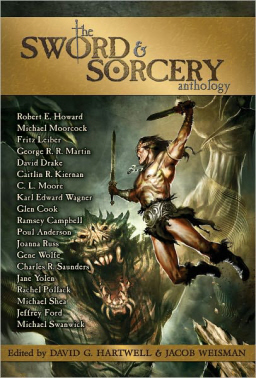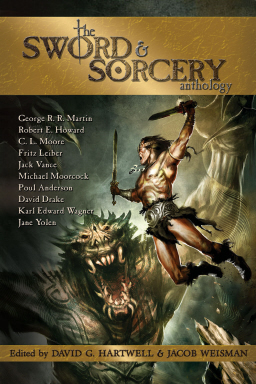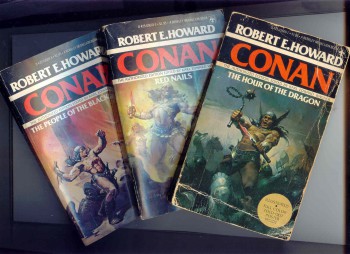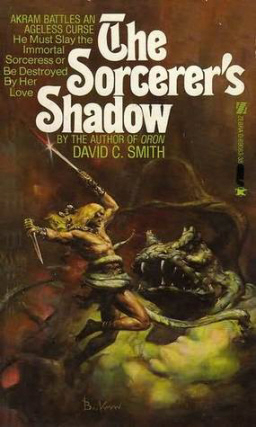Vintage Treasures: The Barbarians Anthology Series
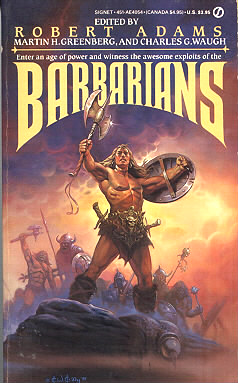 There’s been some good discussion of Sword & Sorcery on the BG blog of late, from Brian Murphy’s excellent list of “A Half-Dozen Swords And Sorcery Short Stories Worth Your Summer Reading Time, and Howard Andrew Jones’s skillful examination of the writing technique of the genre’s patriarch, “Under the Hood with Robert E. Howard,” to Joe Bonadonna’s warm reminiscence of the very best S&S of his youth, “How I Met Your Cimmerian (and other Barbarian Swordsmen).”
There’s been some good discussion of Sword & Sorcery on the BG blog of late, from Brian Murphy’s excellent list of “A Half-Dozen Swords And Sorcery Short Stories Worth Your Summer Reading Time, and Howard Andrew Jones’s skillful examination of the writing technique of the genre’s patriarch, “Under the Hood with Robert E. Howard,” to Joe Bonadonna’s warm reminiscence of the very best S&S of his youth, “How I Met Your Cimmerian (and other Barbarian Swordsmen).”
I thought I was pretty well educated in Sword & Sorcery; but it’s the sign of a rich and vibrant genre that it can still surprise you after decades of collecting.
That’s exactly what happened when I found the artifact at left, buried deep in a paperback science fiction collection I recently purchased.
Barbarians was a major S&S retrospective anthology published by Signet in 1986. It was edited by Robert Adams, Martin H. Greenberg, and Charles Waugh, and contained stories by Fritz Leiber, Fred Saberhagen, Andre Norton, Karl Edward Wagner, and many more. It’s a thick paperback original with 13 short stories.
And no, I’d never seen a copy before — or its sequel. Here’s the back cover copy:
From a beautiful huntress with glittering eyes and a killing kiss to mighty Conan’s struggle in a deadly place beyond magic… from a distant planet fated to do battle with the forgotten past to primeval swordsmen pledged to protect a besieged land — here are tales of titanic strength and unearthly courage, of savage warriors facing incredible challenges in the far-flung realms of the imagination.
Sounds pretty good. Not entirely sure how this one escaped me for all these years, but I’m glad I’ve stumbled across it now.
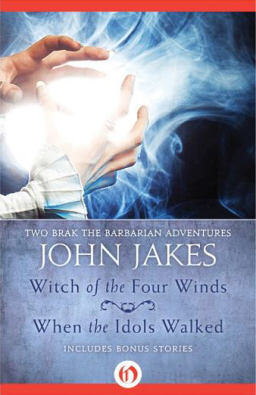
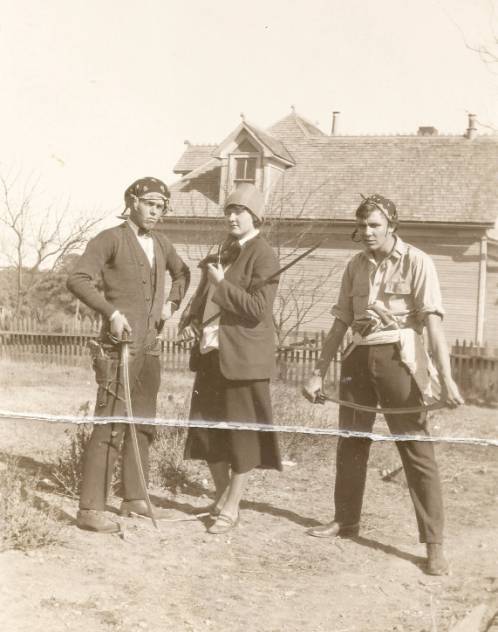
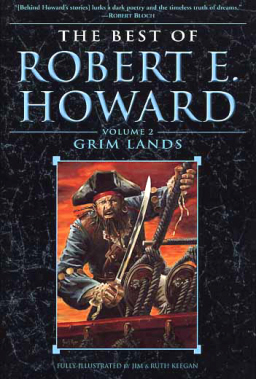
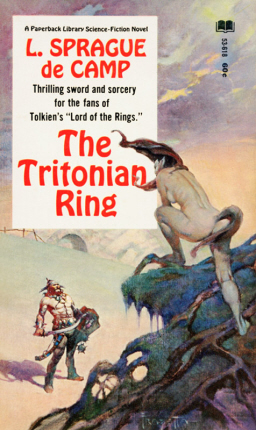
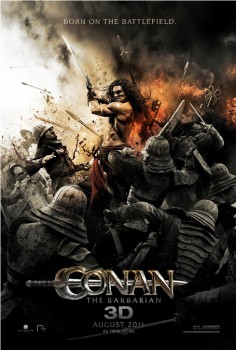 I have a week-long break between summer movie reviews, the gap between
I have a week-long break between summer movie reviews, the gap between 